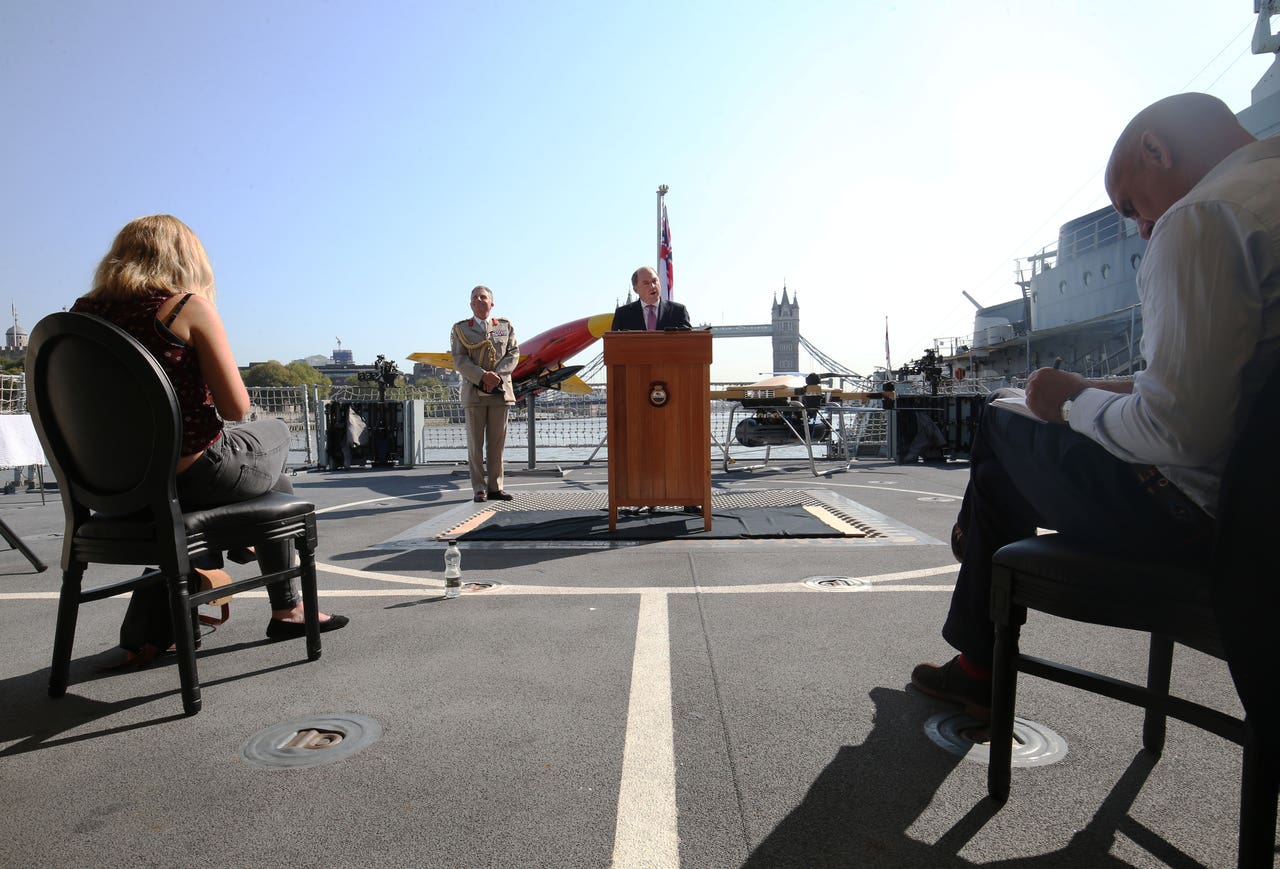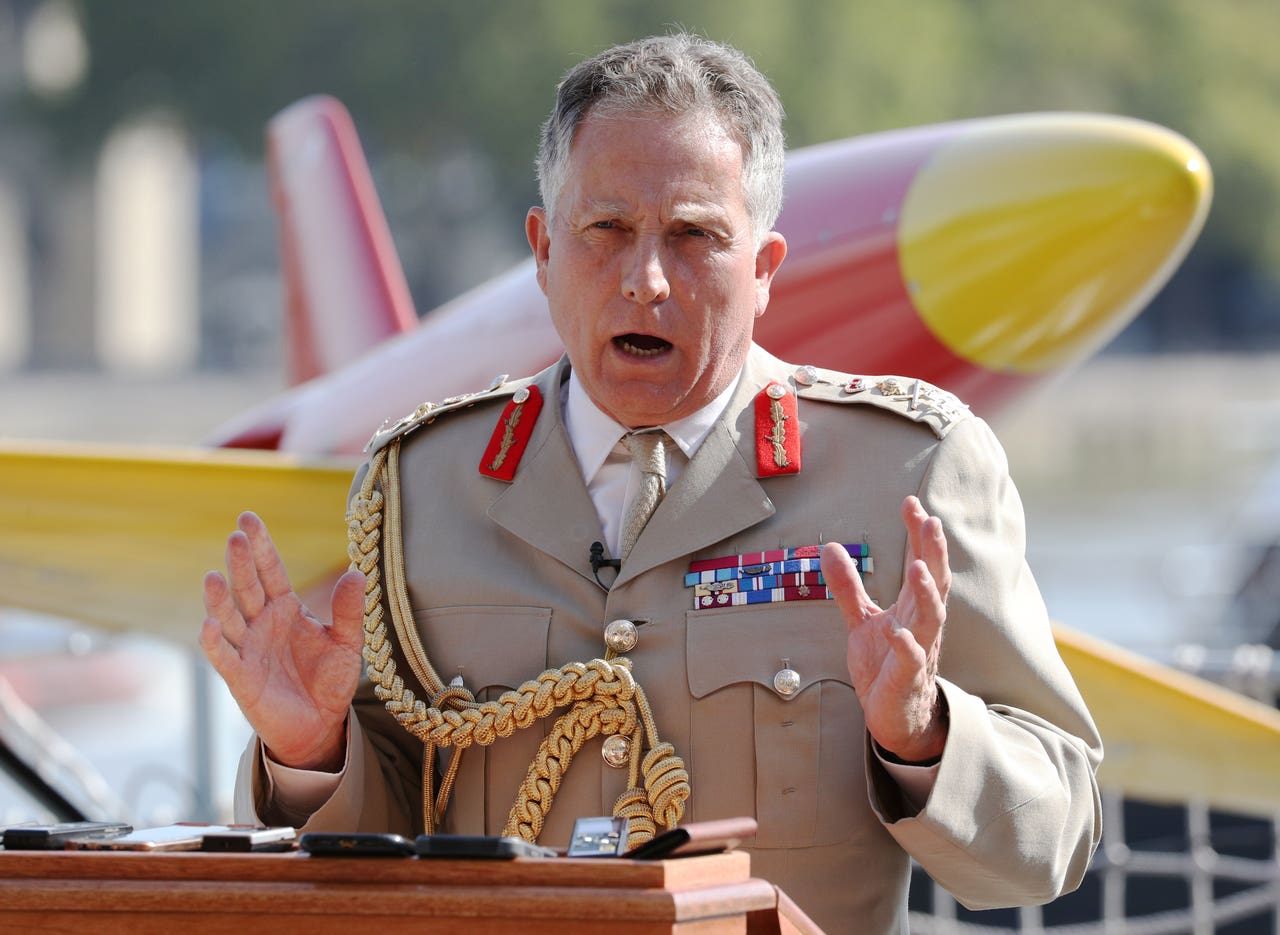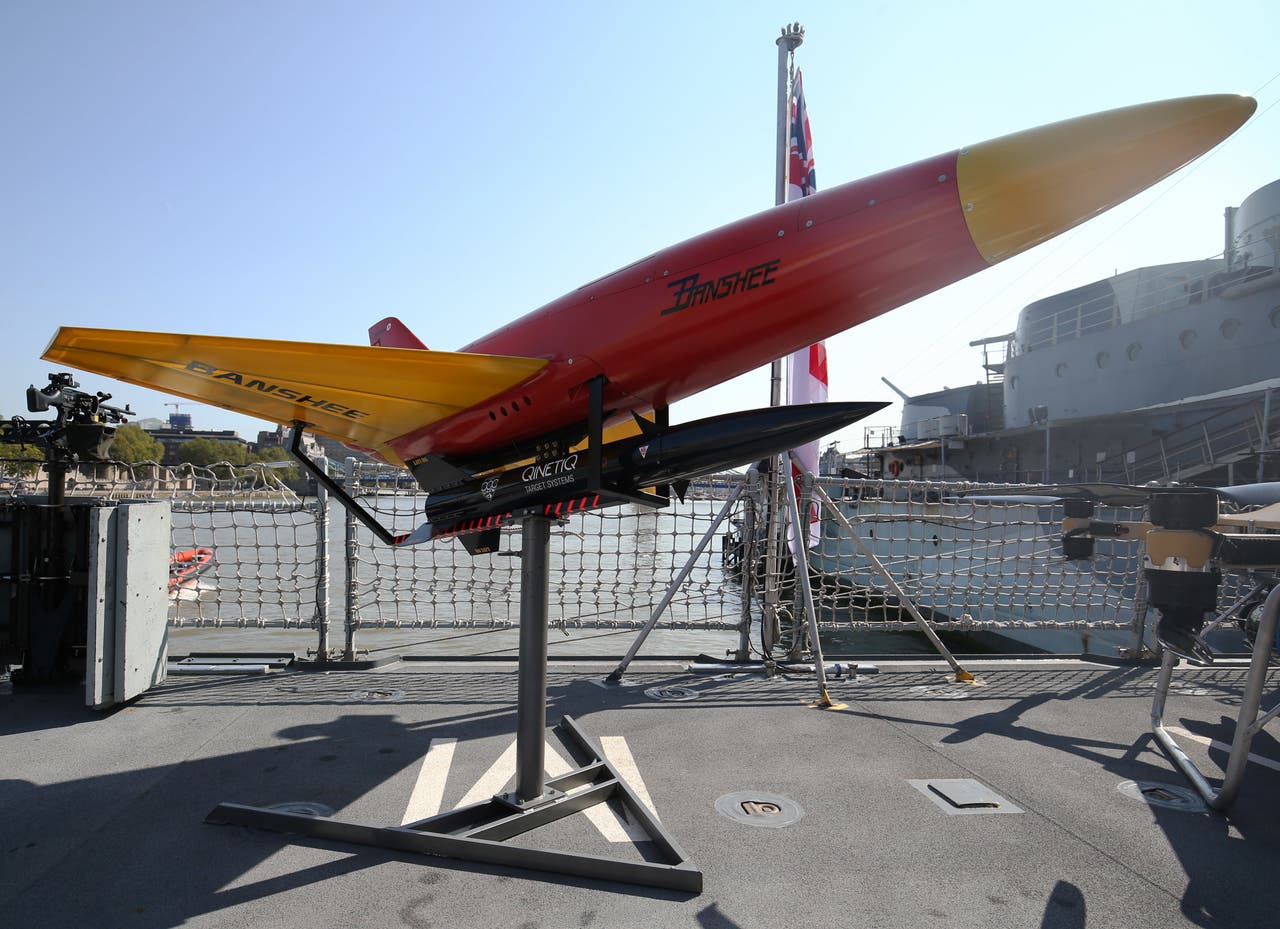Armed forces will be ‘fit for tomorrow’s battles’ after review, Ben Wallace says
The Defence Secretary warned that the UK’s enemies had ‘studied our vulnerabilities’ and adapted more quickly.
/cloudfront-us-east-1.images.arcpublishing.com/shropshirestar.mna/37CL47XCCRCP7GGTXNOOASUNOU.jpg)
Britain’s armed forces will be reshaped to be “fit for tomorrow’s battles, not fighting yesterday’s” under a major review of defence policy and spending, Ben Wallace has said.
The Defence Secretary warned that the UK’s enemies had “studied our vulnerabilities” and adapted more quickly, meaning a “step change” is needed to adapt to the threat.
Speaking aboard the Royal Navy’s newest ship, offshore patrol vessel HMS Tamar, Mr Wallace said: “The static concept of war versus peace no longer applies, as we are contested on either side of the threshold of armed conflict on a regular basis.
“Our values and interests are being challenged in the grey zone all over the world. So the Integrated Review – the deepest and most far-reaching for decades – will represent a step change.
“Not just in how we adapt to the threat, but in how Whitehall faces up to the difficult decisions that must be made.
“In the past, too many reviews were overambitious or underfunded, or both. Too often the budget, not the threat, did the talking.
“So we will pivot away from what we have become used to, and instead reshape our armed forces to become a force fit for tomorrow’s battles, not fighting yesterday’s.”

The Integrated Review of foreign policy, defence, security and international development is due to conclude in the autumn.
It is regarded as the biggest assessment of foreign policy since the end of the Cold War.
Mr Wallace said he expected the armed forces after the review to be “prepared for persistent global engagement, and constant campaigning”; to be “relentlessly innovative”; and to continue to project the UK’s global military power and influence.
“Our Integrated Review will deliver an honest proposition for a modern workforce,” he said.
Britain’s most senior military officer, speaking alongside the Defence Secretary, suggested that despite the new approach, modern warfare would still require troops and heavy armour.

General Sir Nick Carter, the Chief of the Defence Staff, said: “Whilst the character of conflict evolves continuously – and this integrated operating concept is a response to that – the nature of war never changes.
“It will always be visceral, violent and about politics, and ultimately it will always require people to go head to head on the ground to seek a result and a decision.
“It never changes and we should bear that in mind and history would underpin it.”
He said the armed forces would have to be able to “fight war if it happens, because that underpins the credibility and capability you need to operate”.
“But essentially also now against opponents who are prepared to operate below the threshold of that war to be able to compete with them.
“Of course these opponents… no longer distinguish between peace and war, between foreign and domestic policy – or for that matter between public or private.

“They now compete in all these different areas and they take great opportunity in blurring these distinctions.”
His comments come after chief of defence intelligence Lieutenant-General Jim Hockenhull warned adversaries are presenting a threat both digitally and in space.
“Whilst conventional threats remain, we have seen our adversaries invest in artificial intelligence, machine learning and other groundbreaking technologies, whilst also supercharging more traditional techniques of influence and leverage,” he said.